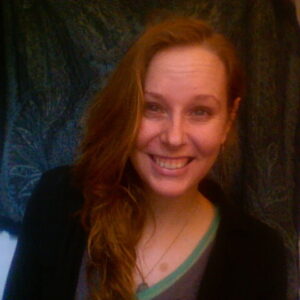 By Sarah Stockholm
By Sarah Stockholm
After a few years of focusing the majority of my energy into community activism and education, I had stepped almost completely out of all involvement in theatre. I was more interested in movement building and educating for social change than static theatre productions. However, it wasn’t too long outside of a focused artistic community that I began to wonder how I could merge these two parts of myself. Then, I met someone and she asked me a seemingly mundane question that changed the direction of my life, “Have you heard of Theatre of the Oppressed?”
Augusto Boal’s vision and practice of a theatre that invites communities into dialogue and social action immediately hooked me. In the summer of 2011, I attended my first T.O. workshop and training facilitated by Marc Weinblatt. That workshop became a catalyst to reengage my playful, theatrical body in a way that also honored my commitment to social justice. I ordered Boal’s books and immediately began practicing as a Joker in my hometown in rural South Dakota.
Since then, I have continued my training and practice as a joker at a very grassroots level. I have worked in rural and urban settings with young children, elders and every age in between. I have witnessed T.O. support multi-racial, multi-class community organizing. I have intentionally used it with other white activists to support a shared commitment to anti-racist praxis and with other women to generate interventions to patriarchy.
This fall, I moved to Port Townsend, WA to join the Poetic Justice Theatre Ensemble, which is one of the only community based theatre troupes that blend T.O. and Playback. My experience with Playback before the ensemble was very minimal and it had not carried the same spark T.O. did for me. I was however, curious to explore the blending of two forms that have such different pedagogical roots. Since the start of the performance season, the ensemble has been focused on training in the techniques of Playback. These forms are clearly developed for actors, whereas T.O. requires no technical theatre experience.
Playback has demanded I grow as a performing artist skilled at supporting storytellers as a witness in a ritualistic space. It has required me to foster deep listening skills and empathy for personal struggles without elaborating on or projecting it into the socio-political context. Consequently, Playback has required me to hold space differently. As a popular educator, organizer and joker, my role is to hear the personal and connect it to the political. Playback asks me to just hear and honor the personal.
Recently, I watched ensemble members playback tellers’ stories at two public performances in Port Townsend. The actors and musicians improvised artistic snapshots of the teller in a manner that captured the emotions and experiences shared in the stories. I realized how deeply hearing and honoring the teller in a community context was of great service to the individual teller and to the entire gathering.
While Playback may not focus directly on confronting oppression in society, it does create a sacred space that is tragically lacking due to oppressive systems. My experience in the world has revealed how infrequently our stories are actually heard. Widespread social dysfunction has created a frightening norm of masking needs and emotions and thereby continuing a dysfunctional cycle. As an organizer, I encounter many people daily who lack the capacity to hear or process stories of struggle. The effect of this means they have a mirrored lack of capacity to engage in social justice movements where stories of struggle are held as evidence of oppressive systems. Is their inability to engage in stories of struggle because their individual stories have not had the space to be honored?
During the last Poetic Justice Theatre Ensemble performance held during an event honoring Martin Luther King’s vision of economic and racial justice, a community-wide silence seemed to be broken. As people spoke and shared their stories of struggle, a feeling spread throughout the space that was undoubtedly one moving from celebration and reflection towards action.
Coincidentally, this week the ensemble shifted from Playback to Theatre of the Oppressed in preparation for upcoming Forum plays. In rehearsal, I noticed how safe I felt sharing my personal connections to systematic injustices. I later realized that during Image Theatre exercises my body and personal story drove the images I created, rather than my intellectual analysis of the social issues. I feel this is directly connected to my recent experiences as an actor and teller in Playback forms.
While straight Playback may never ignite as much fire in me as Theatre of the Oppressed does, I am beginning to sense a blend of both may be useful. I believe my service as a Joker is to support making visible the invisible and to sustain movements of collective resistance, resilience and re-imagining of the world. In T.O., an individual teller offers a story to support the collective process; in Playback, the collective is there to support the individual process. Part of my vision for our collective liberation is one where both forms of storytelling are encouraged and blended in a way that honors and assists the struggle for justice we all face. I have a strong sense that the Poetic Justice Theatre Ensemble is doing just that.
Sarah Stockholm is a Theatre of the Oppressed Joker, cultural organizer, occasional English teacher, farmer, writer and current member of the Poetic Justice Theatre Ensemble in Port Townsend, WA. Her praxis is rooted in anti-oppression activism and democratic, community-based popular education.
